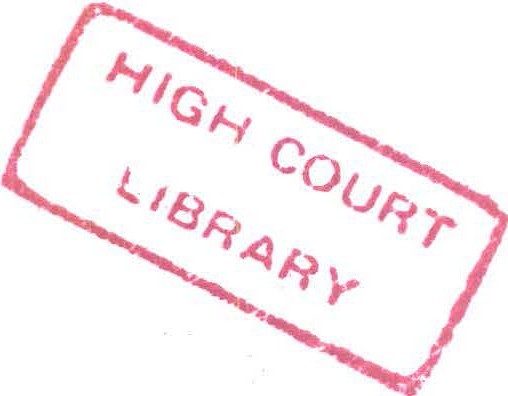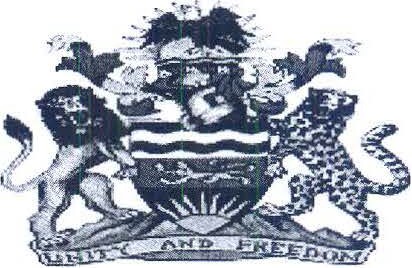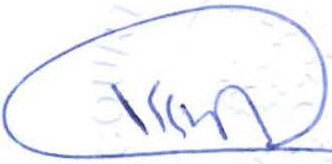Taxonomies
- Case indexes > Environmental
- Case indexes > Environmental > Human exploitation of the environment
- Case indexes > Environmental > Human exploitation of the environment > Land use
- Case indexes > Commercial > Civil Remedies
- Case indexes > Commercial > Civil Remedies > Injunctions and interdicts
- Case indexes > Commercial > Civil Remedies > Injunctions and interdicts > Injunction
- Case summary
-
The court considered an application for the continuation of an interlocutory injunction which was granted to restrain the defendants from entering, cultivating, occupying or developing on the plaintiff’s land. The plaintiff’s father gave him customary land, which he cleared himself and the land was later subdivided. The first defendant alleged that he held a right to the land on account of the growing population of the family.
The court held that an interlocutory injunction is a temporary and exceptional remedy which was available before the rights of the parties had been finally determined. The first issue for the court to determine was whether there was a triable issue. It found that there were pertinent questions regarding the land that had to be determined at trial. The court then considered the issue of compensability, that is, the extent to which damages could be an adequate remedy. The court found that every piece of land had its own unique value and damages would be an inadequate remedy and as the value was difficult to quantify.
The court found that if the interlocutory injunction was not extended the plaintiff would suffer irreparable harm and justice demanded that the land remain intact until the action was determined. Accordingly, the application succeeded.

Kapichi Mberenga v. Destone Germany & Others Kenyatta Nyirenda, J.

JUDICIARY
IN THE HIGH COURT OF MALAWI PRINCIPAL REGISTRY
LAND CAUSE NO. 199 OF 2016
BETWEEN
KAPICHI MBERENGA .................................................... PLAINTIFF
AND
DESTONE GERMANY aka Group Village
Headman Mberenga ................................................... 1ST DEFENDANT
BERTHA GERMANY ............................................... 2ND DEFENDANT
TERESA GERMANY .............................................. 3RD DEFENDANT
FYNESS GERMANY ................................................ 4TH DEFENDANT
CORAM: THE HONOURABLE JUSTICE KENYATTA NYIRENDA
Mr. Micheus, of Counsel, for the Plaintiff
Defendants, present in person and unrepresented
Mr. O. Chitatu, Court Clerk
![]()
Kenyatta Nyirenda, J.
ORDER

The Plaintiff filed an Ex-Summons seeking an interlocutory injunction order restraining the Defendants from entering, cultivating, occupying or developing the Plaintiff's land located at Mberenga Village, Traditional Authority Kapichi in
Thyolo District [hereinafter referred to as the "land"] pending the final determination of the action herein or further order of the Court.
The application is supported by an affidavit sworn by the Plaintiff and the substantive part thereof is in the following terms:
"3. THAT I am a son of the late group village headmen Mberenga whose real name was Maxwell Kapichi who died in 1992 while still serving as group village headman Mberenga.
4. THAT my father had a lot of land (customary) and in 1980 he gave me a piece of land within our village Mberenga village. TA. Kapichi in Thyolo District. It was a virgin land as such I had to clear the trees myself and my family so that it could be used as a farm and since 1981 1have been using the land herein for cultivating various agricultural crops.
5. THAT I have used the land herein all these years without any troubles from anyone or let alone anyone claiming that it is his or her land. My father died in 1992 and about three new village heads have lead the village where my land is without having any issues of land with me.
6. THAT in the year 2014, our village Mberenga was subdivided into two and was given the other part of the village to be its leader. That portion is now known as Magretta village within the same T A. Kapichi, Thyolo District.
7. THAT this year 2016, the first Defendant and his sisters started claiming that the land I was using was given to me by their uncle without considering the future population of their family as such they needed it back as their population has escalated and they had no sufficient land to cultivate.
8. THAT I refer to paragraph 7 hereof and state that due to disagreements they went to Group Village Kapichi who told them openly that there claim was baseless as the land was given to me by my father long time ago and that I have used the land for such a long time without any issues.
9. THAT this year as usual, I have prepared the land for this year's farming session. There was a small portion of the land that was remaining for cultivation. I was shocked in the month of September this year to discover that the Defendants have entered my land and started cultivating it claiming that it is their land. I had my crops there like cassava and pigeon beans (Nandolo) but they are uprooting the same.
10. THAT I went back to Group Village Headman Kapichi who later advised me to just proceed to court as he had noted that the Defendant did not want to listen to him. I don't know why the Defendants have decided to snatch my land. The fact that there family population has escalated is not my problem.
11. THAT the Defendants are using numerical muscle to arbitrarily filch the land from me.
12. THAT I verily believe that unless the Defendants are stopped they will continue to trespass unto my land and destroying my crops. The actions of the Defendants are tantamount to arbitral deprivation of my use and occupation of the land in issue.
13. THAT the actions of the Defendants are a serious threat to our piece and co existence within the area and a total disregard of dispute resolving procedures. The court intervention will also avoid bloodshed and total anarchy.
14. THAT I undertake to compensate any party herein or elsewhere who may suffer damage if it later turns out that the injunction herein was granted erroneously. "
The Ex-parte Summons came before me on 18th November 2016 and I granted an interlocutory injunction without notice subject to an inter-partes hearing on 29th November 2016.
All the Defendants were before the Court on the set hearing date of 29th November 2016 but none of them had filed documents with the Court. The Court took the occasion to explain to the Defendants the procedures that govern such applications. The Defendant elected to proceed with the hearing of the case without the assistance of a legal practitioner.
The Defendants are opposed to the grant of the interlocutory injunction on the ground that they believe that they have a good claim to the ownership and possession of the land. The 1st Defendant gave testimony to the effect that the land belongs to the Defendants' "mbumba" and the Plaintiff is not part thereof in that he is the son of the late Maxwell Kapichi who was merely an uncle to the Defendants.
As regards the long use of the land by the Plaintiff’s family, the 1st Defendant stated that that does not matter since the Plaintiff s family very well knew that they had merely been allowed to use it without bestowing ownership of the land on them.
The 1st Plaintiff also invited the Court to note that the Defendants had fully followed the procedure and protocol regarding such matters, that is, they had taken the issue to Group Village Kapichi. The Defendants were, therefore, surprised that before the matter could be determined by Group Village Kapichi the Plaintiff started cultivating the land. This infuriated the Defendants and they decided to retaliate by gardening the land as well and this led to skirmishes
In his concluding remarks, the 1st Defendant beseeched the Court not to grant the injunction because the Defendants seek to re-possess the land as the land they are presently using is not large enough to feed their respective families that have grown in numbers over the last few years. He also insisted that the land in question
is already too small for them to share with the Plaintiff. It was thus argued that the Plaintiff is not entitled to the interlocutory order that he seeks.
The main issue for determination with respect to the Plaintiff’s application for interlocutory injunction is whether this Court should order continuation of the order of interlocutory injunction, as was argued by the Plaintiff through his Counsel, or dismiss the instant summons, as was argued by the Defendants.
An interlocutory injunction is a temporary and exceptional remedy which is available before the rights of the parties have been finally determined: see 0. 29, r. 1(2) of the Rules of Supreme Court, Series 5 Software Ltd v. Clarke & Others (1996] 1 ALL ER 853 and Ian Kanyuka v. Thom Chumia & Others, HC/PR Civil Cause No. 58 of 2003. In the latter case, Justice Tembo, as he then was, observed as follows:
"The usual purpose of an interlocutory injunction is to preserve the status quo until the rights of the parties have been determined in the action. The injunction will almost always be negative inform, thus to restrain the defendant from doing some act. The principles to be applied in applications for injunction have been authoritatively explained by Lord Diplock in American Cyanamid Co. v. Ethicon Limited [1975] A.C. 396".
In any application for an interlocutory injunction, the first issue before the court has to be "Is there a serious issue to be tried?". Indeed this must be so because it would be quite wrong that a plaintiff should obtain relief on the basis of a claim which was groundless. It is, therefore, important that a party seeking an interlocutory injunction has to show that there is a serious case to be tried. If he or she can establish that, then he or she has, so to speak, has crossed the threshold; and the court can then address itself to the question whether it is just or convenient to grant an injunction: see R v. Secretary of State for Transport, Ex-parte Factortame Ltd & Others (No.2), (1999] UKHL 44. If the answer to the question whether there is a serious issue to be tried is "no", the application fails in limine (see C.B.S. Songs v. Amstrad (1988] AC 1013.
Having considered the evidence before the Court, I am satisfied that the allegations of facts by both parties raise pertinent questions to be determined by the Court at a full trial. As was aptly put in Mwapasa and Another v.Stanbic Bank Limited and Another, HC/PR Misc. Civ. Cause No. 110 of 2003 (unreported), "a court must at this stage avoid resolving complex legal questions appreciated through factual and legal issues only trial can avoid and unravel ". It is enough, accordingly, that the Plaintiff has shown that there is a serious question to be tried: see Matenda v. Commercial Bank of Malawi (1995) 2 MLR 560.
Now that the first hurdle regarding the question whether the Plaintiff has an arguable case is out of the way, it is time to tum to compensability, that is, the extent to which damages are likely to be adequate remedy for each party and the ability of the other party to pay.
As the subject matter of the present case relates to real property, there is really little to say on the matter. It is trite that every piece of land is of particular and unique value to the owner and damages are an inadequate remedy and, in any case, damages would be difficult to assess. The clearest and fullest statement of the principle regarding inadequacy of damages with respect to land is contained in Chitty on Contract - General Principles, 26th ed., Sweet and Maxwell at paragraph 1868:
"Land: The law takes the view that the purchaser of a particular piece of land or of a particular house (however ordinary) cannot, on the vendor's breach, obtain a satisfactory substitute, so that specific performance is available to him. A vendor of land, too, can get specific performance,·for damages will not adequately compensate him if he cannot easily find another purchaser or if he is anxious to rid himself of burden attached to the land. It seems to make no difference that the land is readily saleable to a third party; or that after contract but before completion a compulsory purchase order is made in respect of it ... Yet in such cases damages (based on the difference between the contract price and the resale price, or the compensation payable on compulsory acquisition) would seem normally to be adequate remedy. ".
The legal position taken by the learned authors of Chitty on Contract - General Principles has been fully endorsed by courts in Malawi: see the recent decision by the Supreme Court of Appeal in Village Headman Kungwa Kapinya and Others v. Chasato Estates Ltd, MSCA Civil Appeal No. 75 of 2016 (unreported) and the cases of Sikawa v. Bamusi, HC/PR Land Civil Cause No. 53 of 2013 (unreported) and Mleva v. Simon, HC/PR Land Civil Cause No. 53 of 2013 (unreported) referred to therein.
In the premises, it is unnecessary to consider whether or not the parties will be able to pay damages.
In terms of the guidelines in the American Cyanamid Case, it is where there is doubt as to the adequacy of the respective remedies in damages that the question of balance of convenience arises. In the words of Lord Diplock at 408F and G:
"It would be unwise to attempt to list all the various matters which may need to be taken into consideration in deciding where the balance lies, let alone to suggest the relative weight to be attached them. These will vary from case to case. Where other factors appear to be evenly balanced it is counsel of prudence to take such measures as are calculated to preserve the status quo. "
The rationale is that if the defendant is enjoined temporarily from doing something that he has not done before, the only effect of the interlocutory injunction in the event of his succeeding at the trial is to postpone the date at which he is able to embark upon a course of action which he has not previously found it necessary to undertake. On the other hand to interrupt him in the conduct of an established enterprise would cause much greater inconvenience to him since he would have to start again to establish it in the event of his succeeding at the trial.
The important question to ask is what would happen if the interlocutory injunction is removed? The Defendants would proceed to occupy and cultivate the Plaintiffs land. Thus, in the event of the main action succeeding, the Plaintiff will have suffered irreparable damage. In the circumstances, justice demands that the land must remain intact until the main action is determined one way or the other. The interlocutory injunction will, therefore, remain in force until the main action is determined.
![]()

Pronounced in Chambers this 12th day of December 2016 at Blantyre in the Republic of Malawi.
Kenyatta Nyirenda JUDGE
1
1
Cited documents 0
Documents citing this one 1
Judgment 1
| 1. | Nyirongo v Village headwoman Mangwere and Traditional authority Kulunda (Civil Cause 24 of 2016) [2022] MWHCCiv 9 (23 February 2022) |